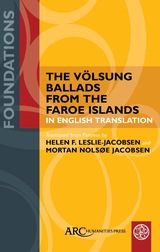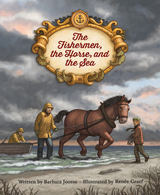
This beautifully illustrated children’s book based on a true story recounts a dramatic rescue on Lake Michigan and introduces young readers to Lester Smith and his family, who founded Port Washington’s long-running and beloved Smith Bros. Fish Shanty. Educational materials including definitions, an illustrated map of Lake Michigan, and short biographies of the story’s featured characters supplement this engaging story for elementary-age readers.
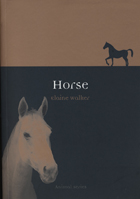
From Pegasus to Black Beauty, horses have held a unique place in human society and imagination. Elaine Walker tackles the long and multifaceted history of a creature valued for both beauty and usefulness.
Spanning the world from the wild steppes of Mongolia to the American plains, Horse chronicles the rich and complex natural history of the animal, from wild feral horses to the domesticated species that once played a central role in daily life as a means of transportation, an instrument of war, and a source of labour. Elaine Walker charts how the long-standing connection between people and horses is reflected in cultures around the world and the implications for both human and animal of such close interaction. She also traces the centrality of the horse in art, entertainment and literature, from the rich global traditions of horse-racing and equestrianism to literary classics such as Follyfoot. Ultimately, Walker contends, the continuing role of the horse in the modern world reveals telling changes in human society.
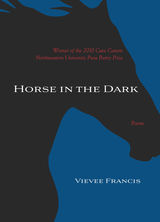
In the next chapter of the Cave Canem/Northwestern University Poetry Prize, we enter the poetic world of Vievee Francis. Bold and skilled, Francis takes us into the still landscapes of Texas and the fluid details of the African American South. Her poems become panhandle folktales revealing the weight of memories so clear and on the cusp. Her creative tangle of metaphors, people and geography will keep the reader rooted in a good earth of extraordinary verse.
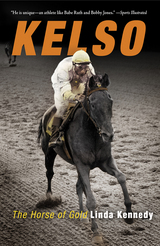
Praise for Kelso: The Horse of Gold:
“Ms. Kennedy has captured the grandeur of the horse in a simple, straightforward way that will charm and excite those who saw Kelso run and remember his stirring deeds. . . . Kelso's racing record through eight seasons is simply breathtaking.”—Wall Street Journal
“In this concise, entertaining account, Kennedy tells the story of Kelso, a scrawny ungainly gelding who just happened to be one of the greatest Thoroughbreds that ever lived.”—Publishers Weekly
“An excellent portrayal... so intense that one has the sensation of being right there with the crowd and cheering Kelso on.”—Tom Trotter, Former New York Racing Secretary
“He was the greatest horse I ever rode.”—Eddie Arcaro, rider of Triple Crown champions Whirlaway, Assault, and Citation
At his three-year debut in June 1960, no one could know that Mrs. Allaire DuPont’s small, deerlike gelding named Kelso would come to dominate American racing like no other horse before or since. For five unprecedented years, he would reign as Horse of the Year, setting records and endearing himself to millions of fans. Always considered among the top four horses of all time—with Man O' War, Secretariat, and Citation—for many, Kelso is the greatest racehorse, since he won at sprints and endurance races, won on turf and dirt, carried unprecedented handicap weights, and raced both foreign and national thoroughbreds. Kelso was crowned champion of the Jockey Gold Cup, one of the most prestigious racing events, an astounding five straight times. Like Seabiscuit, Kelso was not earmarked as a contender and missed the Triple Crown races. But Kelso's greatness was decisive: he regularly defeated Triple Crown race winners. In Kelso: The Horse of Gold, Linda Kennedy tells the remarkable story of one of the greatest athletes of the ages, recreating the excitement of "Kelly's" unique and brilliant career while placing his unparalleled achievements in the context of racing history.
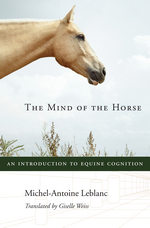
Horses were first domesticated about 6,000 years ago on the vast Eurasian steppe extending from Mongolia to the Carpathian Mountains. Yet only in the last two decades have scientists begun to explore the specific mental capacities of these animals. Responding to a surge of interest in fields from ethology to comparative psychology and evolutionary biology, Michel-Antoine Leblanc presents an encyclopedic synthesis of scientific knowledge about equine behavior and cognition. The Mind of the Horse provides experts and enthusiasts alike with an up-to-date understanding of how horses perceive, think about, and adapt to their physical and social worlds.
Much of what we know--or think we know--about "the intelligence of the horse" derives from fragmentary reports and anecdotal evidence. Putting this accumulated wisdom to the test, Leblanc introduces readers to rigorous experimental investigations into how horses make sense of their world under varying conditions. He describes the anatomical and neurophysiological characteristics of the horse's brain, and offers an evolutionary perspective by comparing these features with those of other species. A horseman himself, Leblanc also considers the opinions of renowned riding masters, as well as controversies surrounding the extraordinary powers of the horse's mind that have stirred in equestrian and scientific circles.
Although scientists understand more today about how horses think than at any time in our species' long acquaintance with these animals, much remains in the dark. The Mind of the Horse brings together the current state of equine research and will likely stimulate surprising new discoveries.
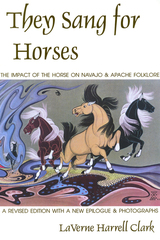
In this completely redesigned and expanded edition, LaVerne Harrell Clark examines how storytellers, singers, medicine men, and painters created the animal's evolving symbolic significance by adapting existing folklore and cultural symbols. Exploring the horse's importance in ceremonies, songs, prayers, customs, and beliefs, she investigates the period of the horse's most pronounced cultural impact on the Navajo and the Apache, starting from the time of its acquisition from the Spanish in the seventeenth century and continuing to the mid-1960s, when the pickup truck began to replace it as the favored means of transportation. In addition, she presents a look at how Navajos and Apaches today continue to redefine the horse's important role in their spiritual as well as material lives.
This classic work is a must for historians, readers interested in Native American folklore and mythology, and anyone who has ever been captivated by the magic and romance of the horse.
Co-winner of the 1967 University of Chicago Folklore Award.
READERS
Browse our collection.
PUBLISHERS
See BiblioVault's publisher services.
STUDENT SERVICES
Files for college accessibility offices.
UChicago Accessibility Resources
home | accessibility | search | about | contact us
BiblioVault ® 2001 - 2025
The University of Chicago Press



